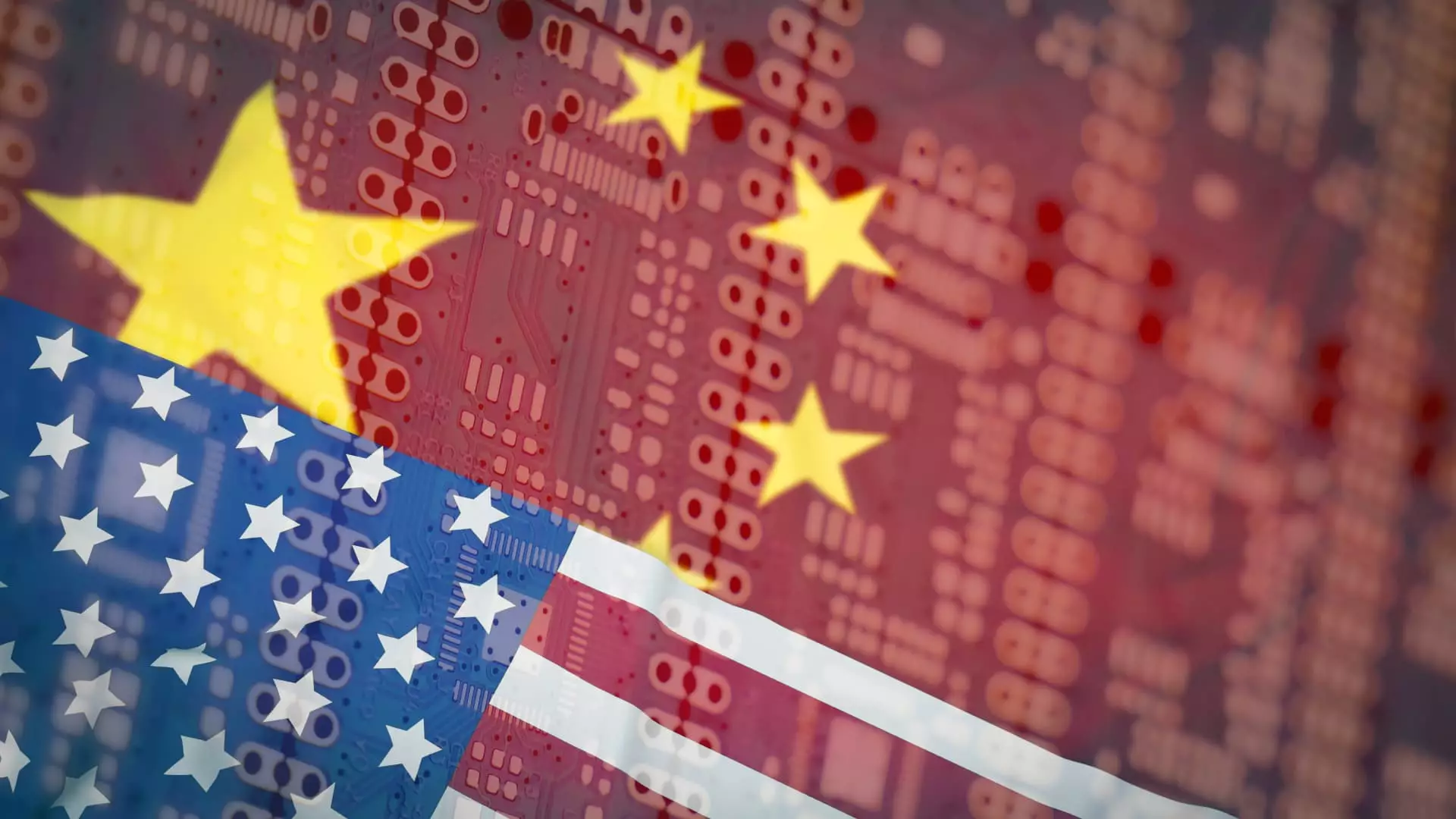In a significant maneuver that underscores mounting tensions between the United States and China, the Biden administration has initiated an investigation into China’s legacy semiconductor sector. This probe, announced on a recent Monday, is predicated on longstanding concerns regarding non-market behaviors employed by Chinese firms that threaten competition and dependency on crucial technology supplies. Semiconductors have become an essential facet of modern industry, finding applications in everything from automobiles to advanced defense systems, thereby placing them at the heart of geopolitical strategy.
The investigation falls under Section 301 of the Trade Act of 1974, a legal framework that allows the U.S. government to assess unfair trade practices by foreign countries. The White House has articulated that the primary focus will be on the production and use of silicon carbide substrates and other wafers integral to semiconductor fabrication. This focus reveals a strategic pivot, aiming not merely at state-of-the-art chips used in artificial intelligence but also at the less advanced, yet still vital, legacy chips.
While Chinese manufacturers are often viewed as lagging behind industry giants like Taiwan Semiconductor Manufacturing Company (TSMC), their capability to mass-produce legacy chips positions them uniquely in the global supply chain. This raises an essential concern for U.S. policymakers who fear that these products, albeit older in technology, could still create vulnerabilities in critical infrastructure.
As the Biden administration escalates its scrutiny of the semiconductor industry—specifically targeting Chinese tech—the implications become multifaceted. Import tariffs, one of the potential outcomes of this investigation, could disrupt existing supply chains, pushing prices higher for U.S. consumers and businesses reliant on these technologies. Moreover, the timing of this probe is telling; it occurs just weeks before the transfer of power back to a Trump administration, emphasizing the continuity of aggressive trade measures that characterize recent U.S. policy towards China.
While the administration’s actions could be framed as protective measures aimed at safeguarding U.S. industries, critics might argue that this approach could lead to a tit-for-tat scenario that further complicates trade relations. Ultimately, the drive to investigate and potentially impose tariffs on legacy chips feeds into a broader narrative of U.S. economic nationalism in the technology sector.
As the investigation unfolds, it calls into question the efficacy of tariffs and other measures in achieving fair competition and safeguarding national security. With Chinese technology companies continuously innovating, the U.S. finds itself grappling with how to maintain its technological edge without exacerbating tensions that could lead to an all-out trade war.
The Biden administration’s new investigation into legacy Chinese semiconductors marks a critical juncture in U.S.-China relations, revealing the intertwined nature of trade policy and national security in a rapidly evolving technological landscape. As the probe progresses, both industries and consumers will watch closely, aware that the outcomes could reshape the dynamics of the global tech market for years to come.


Leave a Reply